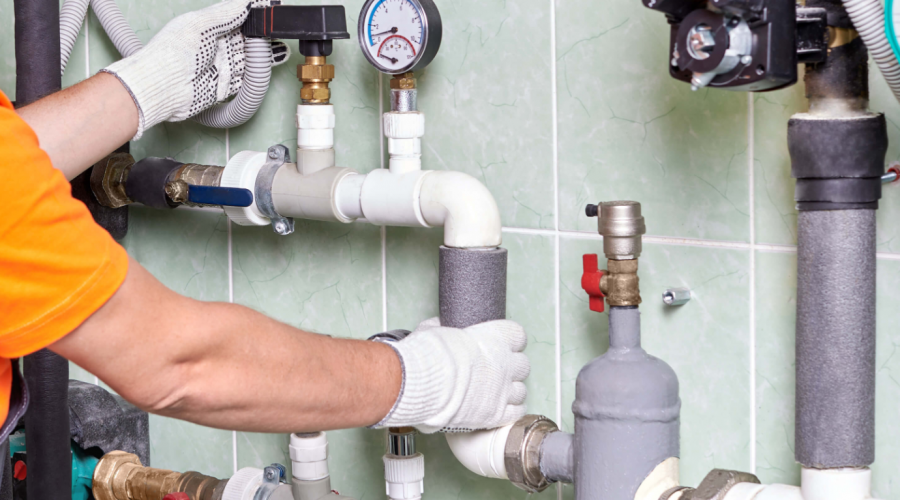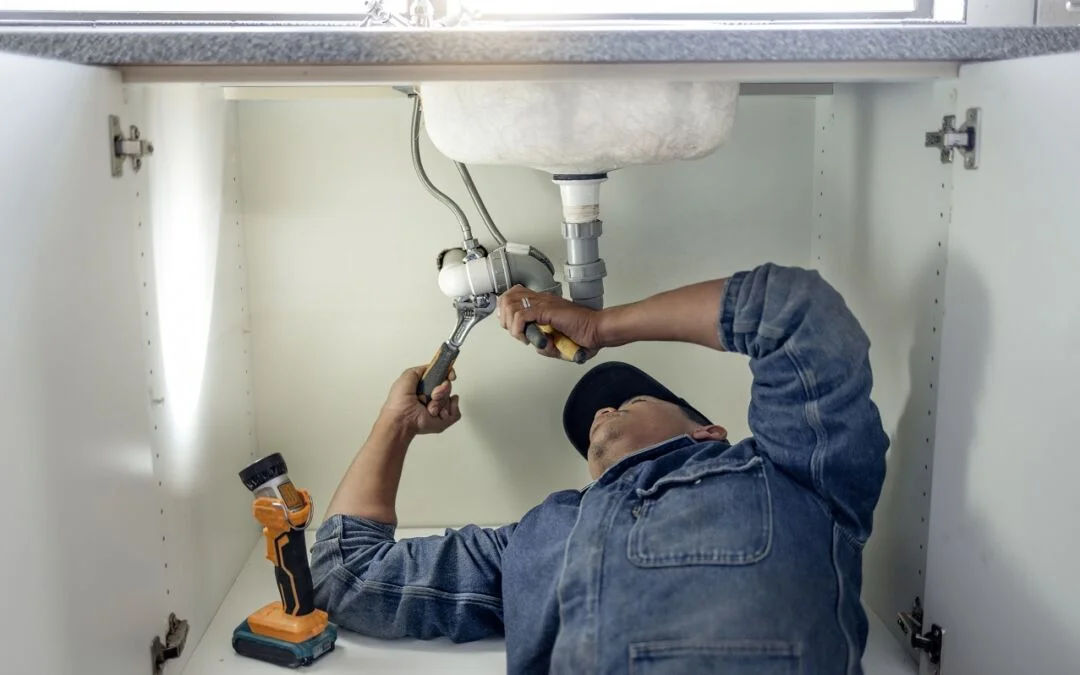The article in the next paragraphs pertaining to What to Do While Waiting for an Emergency Plumber is fairly captivating. Read it for yourself and figure out what you think about it.

Plumbing emergency situations can strike at any moment, causing stress and prospective damage to your home. Whether it's a ruptured pipe, a clogged drainpipe, or a leaking tap, understanding how to take care of the situation till an expert plumber gets here can save you from more problems. This post offers crucial emergency situation plumbing tips to assist you mitigate damage and reclaim control during a pipes crisis.
Switch off the Water Supply
The primary step in any pipes emergency is to turn off the water. For localized concerns, such as a leaking tap or toilet, shut off the shutoff near the fixture. When it comes to a major leakage or ruptured pipe, find your home's main water shut-off shutoff and transform it off instantly. Understanding the location of these valves ahead of time can save important time throughout an emergency.
Turn off Your Hot Water Heater
In certain emergency situations, such as a ruptured pipe, it's smart to shut down your hot water heater. This prevents overheating or damage to the system when water quits moving. Switch off the power supply to the hot water heater (electric or gas) and let it cool down to prevent prospective dangers.
Momentarily Quit a Ruptured Pipeline
A ruptured pipeline can bring about significant water damage in minutes. To mitigate the problem:
Call a professional plumber immediately to address the problem completely.
Have an Emergency Situation Pipes Package
Prepare a fundamental plumbing emergency kit to handle minor concerns properly. Your package must include:
Having these tools on hand can make a considerable difference in your ability to manage emergencies.
Unclog Drains Securely.
A clogged up drainpipe can be an irritating and unpleasant concern. Below's just how to tackle it:.
If these methods do not work, avoid making use of excessive pressure, as it might intensify the blockage.
Manage Overflowing Toilets.
An overruning bathroom can cause instant turmoil. Right here's what you should do:.
Address Tiny Leaks with Momentary Solutions.
Small leaks can promptly become considerable troubles if left unchecked. Utilize these short-lived fixes up until specialist help shows up:.
While these fixes aren't permanent, they can assist lessen water loss and damages.
Handle Frozen Pipeline Very Carefully.
In cooler environments, icy pipes are a common emergency. If you presume an icy pipeline:.
Know When to Call a Specialist.
While quick fixes can aid temporarily, certain pipes concerns call for prompt specialist focus. Call a plumber if:.
Immediately getting in touch with an expert guarantees the concern is settled appropriately and stops additional problems.
Prevent Further Damages.
Taking fast action to minimize damages can conserve you time and money in the long run. Here's just how:.
Final thought.
Plumbing emergency situations can be overwhelming, but with the ideal understanding and tools, you can take care of the circumstance effectively till assistance arrives. By switching off the supply of water, resolving tiny leaks, and using momentary fixes, you can lessen damage and maintain your home safe. Remember, these pointers are short-term remedies; always consult a qualified plumbing to take care of the origin of the issue. Preparation and fast thinking are your best allies in any type of plumbing emergency.
Expert Tips for Emergency Plumbing Repairs
Plumbing emergencies can be incredibly stressful and inconvenient. Whether it’s a burst pipe, a clogged drain, or a leaky faucet, these common plumbing emergencies need immediate attention to prevent further damage to your home. But before you panic, it’s important to understand the basics of plumbing repairs and the steps you can take to address these emergencies. In this article, we will share some expert tips to help you navigate through these situations and minimize potential water damage.
Identifying Common Plumbing Emergencies
Leaky pipes and faucets Clogged drains and toilets Burst pipes Low water pressure Water heater problems Essential Tools for Plumbing Repairs
Plunger: Useful for unclogging toilets and drains Adjustable wrench: Needed for tightening or loosening nuts and bolts Pipe wrench: Ideal for gripping and turning pipes Tape measure: Necessary for accurate pipe measurements Plumber’s tape: Helps create watertight seals Understanding Emergency Plumbing Services
Emergency plumbing services are designed to provide immediate assistance for unexpected plumbing issues that can cause significant damage to your home, business, or health. These services are typically available 24/7 and are staffed by experienced plumbers who can quickly diagnose and repair a wide range of plumbing problems.
When a plumbing emergency strikes, time is of the essence. Whether it’s a burst pipe flooding your basement or a gas leak posing a serious risk, emergency plumbing services ensure that help is just a phone call away. These professionals are equipped with the tools and expertise to handle any situation, minimizing damage and restoring your plumbing system to proper working order.
What Constitutes a Plumbing Emergency?
Burst pipes or water supply lines: These can cause extensive water damage and need immediate repair to prevent flooding. Gas leaks or suspected gas leaks: Gas leaks are extremely dangerous and require prompt attention to avoid potential explosions or health hazards. Sewer backups or overflows: These can lead to unsanitary conditions and significant property damage. Clogged drains or toilets causing water to overflow: Overflowing water can damage floors, walls, and other structures. Leaks or water damage causing structural damage: Persistent leaks can weaken the structural integrity of your home or business. No hot water or heating: A lack of hot water can be more than an inconvenience, especially in colder months. Common Causes of Plumbing Emergencies
Aging or corroded pipes: Over time, pipes can deteriorate, leading to leaks or bursts. Improperly installed or maintained plumbing fixtures: Faulty installations or lack of maintenance can result in unexpected failures. Tree roots or other debris infiltrating your sewer line: Roots can grow into pipes, causing blockages and backups. Frozen pipes or water supply lines: In colder climates, pipes can freeze and burst, leading to significant water damage. High water pressure or sudden changes in water pressure: Excessive pressure can strain pipes and fixtures, causing them to fail. Natural disasters such as floods or earthquakes: These events can disrupt your plumbing system and cause severe damage. Steps to Minimize Water Damage
Locate the water shut-off valve: Knowing where the valve is can help you quickly cut off the water supply to the affected area. Turn off the water heater: If there’s a risk of water coming into contact with the heating element, make sure to turn off the water heater to avoid potential accidents. Open faucets and drain pipes: By opening faucets and drain pipes, you can relieve pressure and empty any standing water. Collect and contain water: Use towels, buckets, or bins to collect water and prevent it from spreading to other areas of your home. https://leecountyplumbingandwellservice.com/expert-tips-for-emergency-plumbing-repairs/

I hope you liked our section on What to Do During a Plumbing Emergency. Thanks so much for finding the time to read through our article post. In case you appreciated our blog posting plz remember to pass it around. Kudos for your time. Kindly pay a visit to our website back soon.
Call